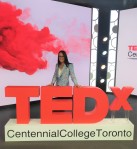
I’ve been thinking about mental health, wellness, and self-care lately, as we approach a full year of public health measures to combat the spread of the COVID virus.
I was out for a walk around my neighborhood and I was struck (yet again) by the profound silence all around (and I live in a pretty densely populated area of the city). But then suddenly as I turned a corner onto yet another side street, the sound of birds filled the air. You know the ones…those little brown sparrows who cluster together in bushes and shrubs, and in this one particular spot on an otherwise quiet street, they were partying! The little birds were almost invisible but there must have been at least 50 of them, all chirping and chatting at once.
It made me think about us humans, all confined in our respective bubbles, and how the memory of social proximity and togetherness feels very far away. I’m finding that even when watching TV shows or movies it’s kind of jarring seeing characters shaking hands with strangers, eating in crowded restaurants, jostling on the subway, etc. etc. Hard to fathom that we are closing in on a year of living, working, teaching, and learning at a distance. We’ve seen lots of media coverage about “COVID fatigue” referencing the need for vigilance in adhering to public health protocols, but let’s remember that COVID fatigue stems, in large part, from our collective deprivation of the rich social world we’ve all been missing.
The challenge of staying connected solely mediated by digital communication channels – largely email, text, and Zoom – makes it increasingly hard to feel and experience that all-important human element in all things digital. Just like those sparrows, our natural inclination is togetherness; and the impact of social deprivation is real. One small but meaningful take-away for me is to be even more mindful of the affective dimensions in emails I’m sending, as well as making time for informal “coffee talk” in Zoom meetings – those personal, relational elements that happen naturally when we encounter each-other in the ‘real world’. Also, recognizing that we all have good days and off days, and trying to be intentional in extending an extra measure of grace and understanding to one-another. Patience with others as well as with ourselves can go a long way.
We still have a long road to travel on this particular journey, but looking forward to the days – hopefully in the not-too-distant future – when we can be like winter sparrows, chatting and chirping with joy! In the meantime, I thought I’d share this graphic from Bell Let’s Talk Day which captures some great reminders of self-care and wellness tips and strategies – my goal is at least three things from this list every day:
Let’s all make a point of taking time to look after ourselves these days. We’re running a marathon!


